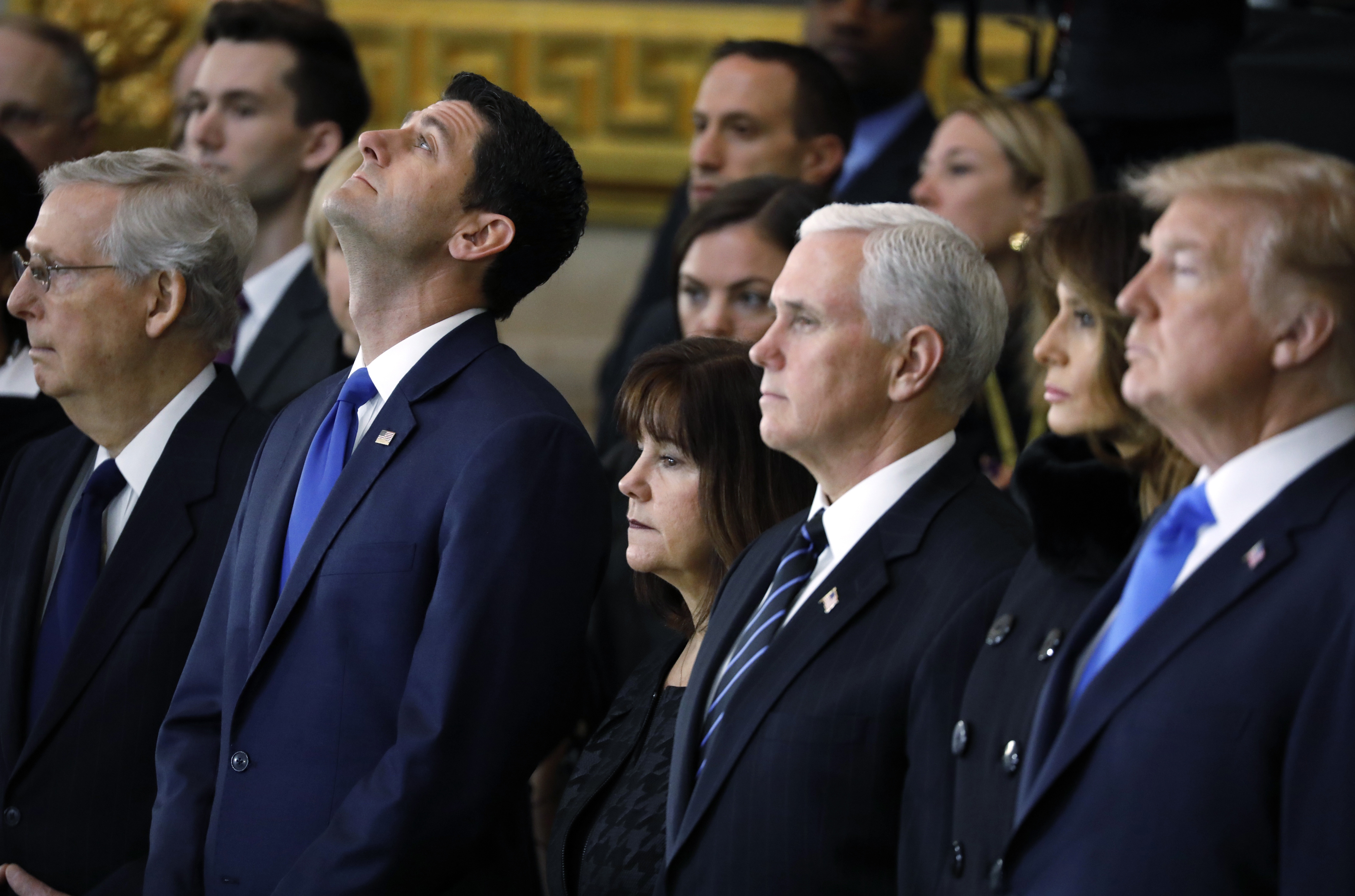The irrelevancy of Paul Ryan
In the Trump era, the House speaker ceased to matter because Congress itself ceased to matter


A free daily email with the biggest news stories of the day – and the best features from TheWeek.com
You are now subscribed
Your newsletter sign-up was successful
When Paul Ryan assumed the speakership, he was hailed as the only Republican in Congress capable of unifying an increasingly fractious party. Respected by the Tea Party as a rare member of the leadership who was a true believer at heart, Ryan promised "concrete results," and a new approach to running the House that gave regular members more input on legislation.
To a first approximation, none of that happened. Under Speaker Ryan, Republicans were unable to agree on a plan to repeal and replace ObamaCare, unable to cut entitlements (Ryan's personal dream since he was in college), unable to make the budget process functional, unable even to address the administration's own priorities of curbing immigration. The only important legislation Congress passed during Ryan's tenure was the tax cut, which was cobbled together frantically with essentially no time for regular members to read it, much less have material input on it. From that perspective, Ryan's tenure looks like a record of failure.
And yet, Ryan does leave the speakership with his party far more unified than it had been. There is little concern that his likely successor, Kevin McCarthy, will face the kind of routine rebellions that made John Boehner's tenure such a misery. If his legislative accomplishments are thin, can Ryan at least take credit for bringing his party back together?
The Week
Escape your echo chamber. Get the facts behind the news, plus analysis from multiple perspectives.

Sign up for The Week's Free Newsletters
From our morning news briefing to a weekly Good News Newsletter, get the best of The Week delivered directly to your inbox.
From our morning news briefing to a weekly Good News Newsletter, get the best of The Week delivered directly to your inbox.
Not at all. Congressional Republicans are far more unified today than they were three years ago not because of anything Ryan did, but because of Donald Trump. Once he descended the golden escalator, the Tea Party was no longer the voice of Republican outrage at the purportedly pusillanimous establishment — Trump was. And by vanquishing the candidate of that establishment (Jeb Bush), the candidate of Tea Party rebellion (Ted Cruz), and the candidate of bridging the divide (Marco Rubio), and then unexpectedly winning the presidency with minimal help from the official party, Trump definitively made the battles of the Obama years obsolete.
That doesn't mean there aren't still disagreements among the Republican ranks. Repealing and replacing ObamaCare would have been a snap if there were actual broad-based agreement on policy. But in the Trump era, those disagreements don't really matter anymore. If they did, how on Earth would Congress have passed a massive bi-partisan spending bill that repudiated everything the Tea Party supposedly stood for?
Ironically, under Obama, when any partisan Republican legislation would have been a dead letter, the symbolic stakes of votes were viewed as extraordinarily high — high enough that they risked tearing the party apart, and even threatened the integrity of the government's promise to honor its debts. Now, when the president is plainly prepared to sign pretty much anything Congress is able to agree on, there's almost no enthusiasm for action, and a palpable desperation to pass the buck back to a flailing administration that is nonetheless much more popular among Republicans than Congress is. Ryan is still relatively well-liked for a Republican leader (certainly better-liked than his Senate counterpart, Mitch McConnell). But he does not have the power to make himself feared.
Now that Ryan is retiring, eulogies are being written about the passing of an era of principled, wonkish leadership. But whatever convictions he holds in his heart, Paul Ryan is not a man who has difficulty compromising his principles, or making sausage in a way that would appall a health inspector. A principled opponent of entitlements would never have supported Medicare Part D. A principled deficit hawk would have balked at a massive tax cut that not only won't pay for itself but will ultimately cost more than the sticker price. And a principled believer in the constitutional order would never have concluded that those tax cuts were worth all the other depredations of a Trump presidency.
A free daily email with the biggest news stories of the day – and the best features from TheWeek.com
Far from being the kind of man of principle who frequently stands apart, Ryan has always been a man in the arena. It's just that, in the Trump era, Congress is no longer really an arena — no longer a place where power is wielded, battles fought, and compromises made. It's less a legislature than a monarch's court, and Ryan is not an especially favored courtier.
More than the prospect of losing in November, the prospect of two more years of emasculation is likely what's driving a record number of Republican retirements. So why shouldn't Paul Ryan be among them? His likely successor seems far more comfortable with the new order on the Potomac. Why not let him have the gavel? It doesn't make as loud a bang as it used to anyway.
Noah Millman is a screenwriter and filmmaker, a political columnist and a critic. From 2012 through 2017 he was a senior editor and featured blogger at The American Conservative. His work has also appeared in The New York Times Book Review, Politico, USA Today, The New Republic, The Weekly Standard, Foreign Policy, Modern Age, First Things, and the Jewish Review of Books, among other publications. Noah lives in Brooklyn with his wife and son.
